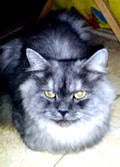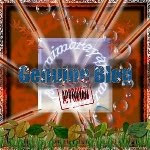Saturday, July 4, 2009
KITARO - Matsuri
Matsuri is probably Kitaro's most wellknown piece and it is one of his best music. An astonishing song that touches the spirit and soul.
The Kitaro Mind, body, and spirit continues to be a developing organism and preparing itself to set out upon a lifetime commitment composing signature sounds, and to continue to embody the human spirit within his music, as we can now read his first published poem from 1986:
TENKU
I SEND A MESSAGE OF SOUND
TOWARD THE SKY
ENGULFING EMPTY SPACE
SORING FAR BEYOND GRASP
HIGH ABOUE MOUNTAIN TOPS
BEYOND OCEAN WAVES
STRETCHING TO REACH THE ANDES
AND LIGHTLY TOUCHING NEPAL
WATCH AS THE SOUNDS FLOW
LISTEN AS YOU FEEL THE WIND BLOW
NATURE IS COLORED WITH ROMANCE
UNFOLDING A DRAMA DAY BY DAY
PLANTS BREATH A RHYTHM
INSECTS PLAY THEIR MELODY
LIGHT FLIES AS WIND CRYS
NOW CATCH THE SOUND…FEEL THE LIGHT
BY FEELING THINGS WHICH ARE WITH LIFE
INNOCENTS RESPOND TO THE DELICATE SIGH
OF THE WORLD, WEAVING THEIR OWN DREAMS
DREAMS WHICH SPREAD THROUGHOUT THE WORLD
PEOPLE BEGIN TO SING HARMONIES OF LOVE, WORDLESS
THIS IS A BEGINNING
CONNECTING THE DREAM
TO THE COLOR OF YOUR BREATHLESS HEART
PEACE AND TRANQUILITY, YOU NEED ONLY TO SING
IT IS FOR YOU
As we could interpret, Kitaro Mind poetry is not restricted to one specific thought but encompasses all living entities that are woven together affecting a collective dream reality by feelings we call nature. Again, it should be understood that we couldn’t elaborate or speculate about another’s essence, psyche, spirituality, etc. What can be presented is personal knowledge of Mr. Takahashi through his music and his candid remarks.
Kitaro - The Silk Road
Kitaro's music is fluid and harmonic, as he blends smooth electronic lines with influences from traditional Japanese music, rock, and the romantic Western tradition. Silk Road is a phenomenal success and very possibly the best Kitaro release. There are incredible transitions throughout the pieces, making this a true masterpiece and a treasure to own.
Kitaro - Caravansary
Kitaro has noted that his purpose with his music is to calm the inner person: "The wars of the world don't come from outer space. People create them, people who have a war within themselves. I want to create music that eases that war within."
Caravansary
Once a long long time ago
setting out find our dreams
lost in memories
of golden days
sometime rising in the spring
glowing shining game the sun
golden days means
come to till return
those who know the fire burn
try to find forever the dream
try to find forever the way
My way
Caravan journey in the sky
As the sun comes out
From the day
Caravan we know
Who we are
We discover
Where we went
Oh ohh caravan
There we find the love
Love shimmering
And soon our love
Is trough
Come with me
And take my hand
Memories of
Past unfold
And with I lived
Them once again
From my fading
Heart my hand
Feel my walk
In love with him
And I wander when
The spring will come
Do we ever really
Know for sure
Will we travel
On and on
Someday we'll be
Standing up
From today
Caravan journey in the sky
As the sun comes out
From the day
Caravan we know
Who we are
We discover BIS
Where we went
Yeah caravan
There we find the love
Love shimmering
And soon our love
Is trough
Kitaro - Dance of Sarasvati
Kitaro's music is a reflection of his reverence for nature and for the world as humanity's natural habitat. "Nature inspires me," he says. "To me, some songs are like clouds, some are like water."
The beauty of nature was part of Kitaro's earliest days. He was born into a Buddhist/Shintoist farming family in Toyohashi Prefecture in Central Japan in 1953. His rural youth gave him an early feel for the simplicity and grandeur of nature. "I found a place in nature when I was very young," he recalls. "And spirituality, I was always a universalist in my outlook."
Friday, July 3, 2009
KITARO , A Miracle from Japan
Biography
Name: きたろう
Name (romaji): Kitaro
Real name: 古関安広 / Koseki Yasuhiro
Profession: Actor
Birthdate: 1948-Aug-25
Birthplace: Chiba, Japan
Height: 164cm
Star sign: Virgo
Blood type: O
Early life
Inspired by the R&B music of Otis Redding, Kitaro taught himself how to play guitar. While attending Toyohashi Commercial High School, he started the "Albatross" band with his friends, performing at parties and in clubs. "I started out playing the guitar but then changed to the keyboards. Before one of our gigs, the drummer was injured. I had no experience at all on the drums, but I had to learn it because I was the leader of the band, and we had to do the gig…Later, the bassist had injuries, so I had to learn how to play the bass. [These accidents are] the main reasons why I can play all these instruments; I had a crash course in how to play them. It was a hard time for me, but a very good experience.”
After graduating, Kitaro moved to Tokyo to experience and become a part of the music scene, and it was there that he discovered the synthesizer. His first synthesizer was analog, and recalls he “just loved the analog sound that it made compared to today's digital sound”.
His parents were first opposed to the idea of their son having a musical career. Indeed, in an effort to manoeuvre him towards their vision, they made arrangements for him to take a job at a local company. In return, he left home without telling them. He supported himself by taking on several part time jobs such as cooking or civil service work, meanwhile composing songs at night.
In the early 1970s, he changed completely to keyboards. He joined the band "Far East Family Band" and toured with them around the world. In Europe, he met the German synthesizer musician and former Tangerine Dream member Klaus Schulze. Schulze produced two albums for the band and gave Kitaro some tips for the use of synthesizers. In 1976 he left the band and travelled through Asia (China, Laos, Thailand, India).
Solo career
Back in Japan, Kitaro started his solo career in 1977. The first two albums Ten Kai and From the Full Moon Story became cult favorites of fans of the nascent New Age movement. He performed his first symphonic concert at the 'Small Hall' of the Kosei Nenkin Kaikan in Shinjuku, Tokyo. During this concert Kitaro used a synthesizer to recreate the sounds of 40 different instruments, a world's first. But it was his famous soundtrack for the NHK series "Silk Road" that brought him international attention.
He struck a worldwide distribution arrangement with Geffen Records in 1986. This included a re-releasing of five prior albums -- Astral Voyage, Full Moon Story, Millennia, India, and Asia, each handsomely packaged with Japanesque obi strips -- and a new album, the aptly titled, Toward the West. In 1987 he collaborated with different musicians, e.g. with Micky Hart (Grateful Dead) and Jon Anderson (Yes). In 1988 his record sales soared to 10 million worldwide. He was nominated twice for a Grammy award and his soundtrack for the movie "Heaven & Earth" won the award for best original score.
When asked about his music, he said, "I never had education in music, I just learned to trust my ears and my feelings." He credits ‘powers beyond himself’ for his music, saying, "This music is not from my mind. It is from heaven, going through my body and out my fingers through composing. Sometimes I wonder. I never practice. I don't read or write music, but my fingers move. I wonder, 'Whose song is this?' I write my songs, but they are not my songs."[citation needed]
1995 to present
Since his 1995 début for Domo Records—the Grammy-nominated Mandala, featuring bold use of electric guitar—Kitaro has released no less than thirteen albums. Among them, the live An Enchanted Evening (1995), the deeply spiritual Gaia Onbashira (1998) and Ancient (2001), were all Grammy nominated. The 2000 Thinking Of You, which allmusic.com calls a “journey to ecstasy” and “one of the most beautiful CDs of all time,”[citation needed] won the Grammy for Best New Age Album.
Kitaro’s music has long been recognised for its messages of peace and spirituality. In the wake of September 11, the artist began recording Sacred Journey Of Ku-kai, an intended series of peace-themed albums (Vol. 1 released in 2003; Vol. 2 in 2005, vol.3 in 2007), inspired by the classic Buddhist pilgrimage to the 88 sacred temples on Japan’s Shikoku Island, a journey taken by the famous Buddhist monk Kūkai over a millennium ago.
In 2007, Kitaro has composed the music for West Lake Impression, a large-scale opera, directed by renowned Chinese film director Zhang Yimou. The opera reflects the city’s history and culture through music and dance. Using modern technology, the stage is 75 centimeters below the lake’s surface during the day so as not to affect the landscape and boating activities. In the evening, the stage is 75 centimeters below the lake’s surface.[citation needed] The two-hour event had its opening night in March 2007.
In 2007-2009 he launched the ‘Love and Peace World Tour,’ an international tour with which Kitaro hoped to inspire his message of world peace with his music. Kitaro toured Southeast Asia in 2007, and Greece in 2008. During his visit to Greece, Kitaro met Greek musician and composer Vangelis, and exchanged musical expirience and creative ideas. Kitaro has also reunited with drummer Mickey Hart.
Personal life
From 1983 until 1990 Kitaro was married to Yuki Taoka. Yuki is a daughter of Kazuo Taoka, godfather of Yamaguchi-gumi, the largest Yakuza syndicate. Kitaro and Yuki had a son, Ryunosuke, who lives in Japan. They reportedly separated because Kitaro worked mostly in the United States while Yuki lived and worked in Japan. In the mid-nineties, Kitaro married Keiko Matsubara, a musician who played on several of his albums. Along with Keiko's son, the couple lived in Ward, Colorado on a 180 acre (730,000 m²) spread and composed in his 2500 square foot (230 m²) home studio "Mochi House" (it is large enough to hold a 70 piece orchestra). Kitaro and Keiko recently relocated to Occidental, California.
In 1989, he wrote the "Japanese" Theme for the film "Return From The River Kwai".
He has worked with guitarist Marty Friedman, formerly of Megadeth, on the "Scenes" album. He has also worked with Hong Kong Cantopop singer Anita Mui on the song "Years Flowing Like Water" "似水流年".
Kitaro composed the soundtrack of the Oliver Stone film Heaven and Earth.
























.png)






















































